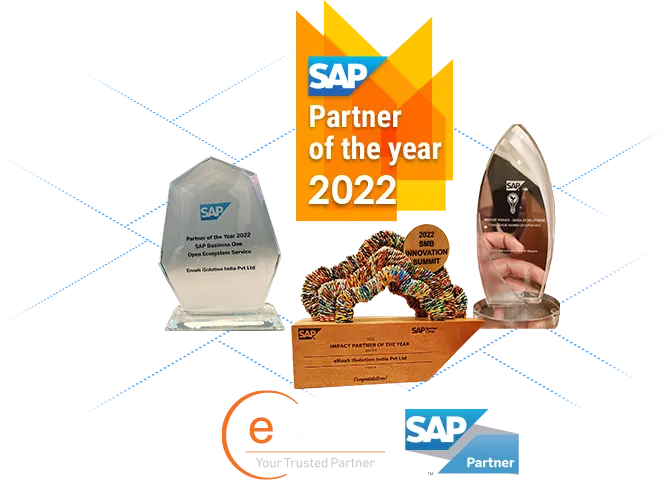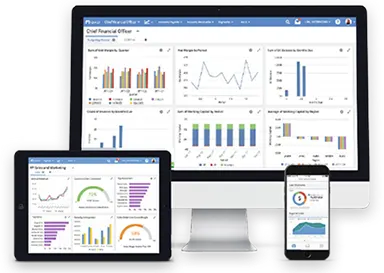In the dynamic landscape of modern business, the reliance on efficient and adaptive Enterprise Resource Planning (ERP) systems is crucial for sustained success. However, many organizations grapple with aging legacy ERP systems that struggle to meet evolving business needs. Addressing the challenges posed by legacy systems involves strategic decisions – whether to maintain, rebuild, or replace the existing ERP infrastructure. In this blog, we’ll explore these scenarios and delve into how eNoah, with its expertise, can assist businesses in transforming their ERP landscape.
Legacy ERP Systems:
The Maintenance Challenge:
Legacy ERP systems, while once the bedrock of organizational operations, often face challenges such as outdated technology, limited functionalities, high maintenance costs, and lack of support from vendors. The maintenance of these systems becomes increasingly cumbersome, requiring continuous patches, updates, and fixes to keep them operational. This scenario poses risks of system failures, security vulnerabilities, and impediments to innovation.
eNoah’s Approach:
eNoah understands the complexities and risks associated with maintaining legacy ERP systems. With a meticulous assessment, eNoah identifies critical pain points, legacy system vulnerabilities, and assesses the feasibility of maintenance vis-à-vis the cost of potential risks. The team provides tailored solutions to stabilize and optimize existing systems while developing a roadmap for future transformation.
Rebuild Strategy:
Modernizing Legacy ERP Systems:
For businesses seeking to revitalize their ERP infrastructure, rebuilding legacy systems presents an opportunity to modernize and enhance functionalities. This approach involves leveraging existing data and functionalities while adopting modern technologies, scalable architectures, and user-friendly interfaces. However, rebuilding requires careful planning, addressing integration challenges, and ensuring a seamless transition without disrupting day-to-day operations.
eNoah’s Approach:
eNoah specializes in strategizing and executing ERP system rebuilds. With a focus on preserving essential functionalities and data integrity, eNoah architects a roadmap for system modernization. Through meticulous planning, agile methodologies, and robust testing, eNoah ensures a smooth transition to the revamped ERP, minimizing downtime and optimizing system performance.
Replace Strategy:
Transitioning to Next-Gen ERP Systems:
In scenarios where legacy ERP systems prove obsolete or cost-efficient to maintain or rebuild, replacing the system becomes imperative. Transitioning to next-generation ERP solutions offers the promise of advanced features, scalability, cloud integration, and enhanced agility. However, ERP replacement requires comprehensive planning, data migration, user training, and change management.
eNoah’s Approach:
eNoah’s expertise extends to seamless ERP system replacements. Understanding the intricacies of transitioning from legacy systems to modern ERPs, eNoah ensures a meticulous migration strategy, minimizing disruptions and data integrity risks. With a focus on user adoption and comprehensive training, eNoah facilitates a smooth transition to the new ERP environment.
Transformational Expertise:
How eNoah Can Help:
eNoah’s prowess in ERP transformation lies in its holistic approach. The team collaborates closely with businesses to understand their unique challenges, objectives, and constraints. Leveraging deep industry insights, technological expertise, and proven methodologies, eNoah offers:
- Thorough Assessment: Comprehensive evaluation of existing ERP systems, identifying pain points and opportunities.
- Tailored Solutions: Customized strategies, whether maintaining, rebuilding, or replacing ERP systems, aligned with business goals.
- Seamless Execution: Meticulous planning, agile methodologies, and robust testing to ensure smooth transitions with minimal disruptions.
- Continuous Support: Ongoing support, training, and optimization to ensure sustained efficiency and user adoption post-transformation.
Conclusion:
Navigating the complexities of legacy ERP systems – whether maintaining, rebuilding, or replacing – demands a strategic and meticulous approach. eNoah’s expertise in ERP transformation offers businesses a pathway to revitalize their ERP landscape, optimizing operations, enhancing functionalities, and future-proofing their systems for continued success in a dynamic business environment. With eNoah as a strategic ERP partner, businesses can embark on a transformative journey toward an agile, efficient, and innovative ERP ecosystem.


